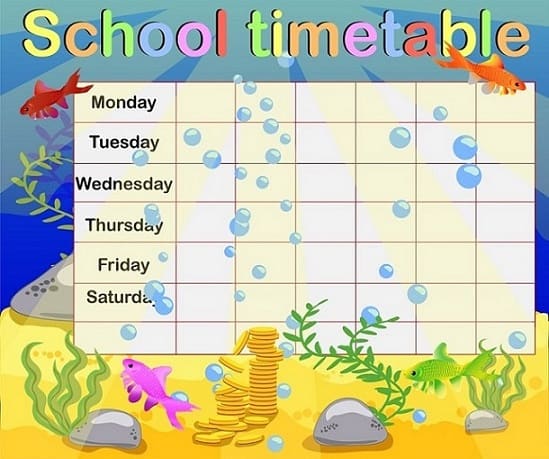Looking for an unbiased homeschool resource that doesn’t have a hidden agenda? You’ve come to the right place to learn how to homeschool in Hawaii.
To homeschool in Hawaii, a parent or guardian should become familiar with Hawaii’s homeschooling laws and regulations. Families must decide on a curriculum that fits their needs and be prepared for the self-discipline required to maintain a robust academic schedule.

How to Homeschool in Hawaii
Homeschooling in Hawaii follows the same general process as homeschooling in other states. Here are the steps you can follow to homeschool your child in Hawaii:
- Familiarize yourself with the homeschooling laws in Hawaii: The Hawaii Department of Education has specific guidelines for homeschooling, which you should review before starting to homeschool your child. You can find more information on the Hawaii Department of Education website.
- Choose a homeschooling method: There are many different approaches to homeschooling, including traditional, unschooling, and virtual schooling. Consider what will work best for your child and your family, and research different methods to find the one that is right for you.
- Create a plan: Determine what subjects you will teach and when, and create a schedule that works for you and your child. You may also want to consider enlisting the help of a tutor or joining a homeschooling group to provide additional support and resources.
- Register your child as a homeschooler: In Hawaii, you must notify the Department of Education of your intent to homeschool your child and provide a letter of intent. You will also need to provide proof of immunization and a birth certificate.
- Start homeschooling: Once you have everything in place, you can begin homeschooling your child. Remember to keep records of your child’s progress and to review and update your plan as needed.
Educational and Interactive Word Search Puzzles
It’s important to note that homeschooling can be a rewarding but challenging experience. It requires dedication, organization, and a strong commitment to your child’s education.
However, with the right resources and support, you can successfully homeschool your child in Hawaii.
As of February 2020, at least 9 million Americans had been homeschooled at least once.
Free Hawaii Homeschool Programs
Parents in Hawaii have the option of utilizing free homeschooling programs that offer engaging curriculums to educate their children and promote lifelong learning.
Homeschooling allows parents and students to tailor their educational journey while still providing a solid education base.
Additionally, Hawaii’s free homeschooling programs offer increased accessibility to those who may not have the means or ability to join an approved course.
These organizations are striving to give equal educational possibilities to all people regardless of financial constraints, such as private school tuition.
If you live in Hawaii and need extra support with homeschooling your child, check out the Hawaii Department of Education.
Parents can rely on the Home School Legal Defense Association (HSLDA) for help with understanding homeschooling laws in Hawaii, plus webinars and articles to aid with overall homeschooling.

Does Homeschool Have to be Accredited in Hawaii?
Although the state of Hawaii does not mandate accreditation for homeschools, parents may choose to pursue it. The process is straightforward and most schools accept a variety of accredited providers, so finding the right course for your child is relatively easy.
Possessing an accredited credential may provide an advantage to job seekers in the long run as many employers favor applicants with such credentials.
Accrediting your homeschool can help make sure your child is on the same level as other students educationally, and makes transitioning to a school or college smoother should they choose to in the future.
Between 2019 to 2020, the percentage of homeschooled students changed from 3.4% to 9%.
Hawaii Accredited Homeschool Programs
Accredited homeschools need to provide proof of enrollment and attendance, keep records of grades, conduct yearly standardized tests approved by the state, have a designated supervisor with a high-school level diploma or equivalent, and stay informed on any required curriculum changes.
Private schools accredited by the state must include admission policies that state their compliance with all laws and regulations governing compulsory attendance.
Accredited homeschooling allows parents to provide their kids with a quality education from the comfort of home.
67% of the homeschooled students successfully graduate from college.
Create a Designated Learning Place
Homeschoolers should have a specific area set aside for learning, to help establish a daily routine and provide an environment where their child can concentrate on schoolwork.
A dining table is an ideal spot for studying. It’s easily cleared off at the end of each day which allows it to be used for eating as well.
You can also provide your child with their own desk in their bedroom for added privacy and the opportunity to decorate it. Whatever you decide, be sure to create an environment that helps them focus on learning.
Over 300 million students were homeschooled as a result of the COVID-19 pandemic.
Stay On Track with a Daily Schedule
Sticking to a daily schedule for homeschooling has many advantages; here are some of them:
- Establishing a daily routine can help homeschoolers prioritize tasks, complete more in less time, and improve productivity. Families with multiple students or other outside commitments may particularly benefit from this strategy.
- Effective time management begins with planning. A daily schedule makes it easier to keep track of what needs to be done and when, and prevents feeling rushed or overwhelmed. Allocating specific blocks of time to tasks can help your family stay organized.
- Homeschooling can provide a sense of structure and regularity, especially beneficial for kids accustomed to attending a traditional school. This can make them feel safer and more prepared to learn.
- Families can benefit from daily schedules to stay accountable and meet their homeschooling objectives. This is important for those who tend to be easily distracted or delay their tasks.
- Having a daily schedule in place can facilitate better communication among family members, helping to avoid misunderstandings and building a stronger bond between them.

Ease Into It
Homeschooling for new parents can be a big shift, so it’s crucial to not apply excessive pressure from the start. It is best to ease into this transition and move forward at a steady pace.
Homeschooling parents can begin with just a few basic supplies and then build on their resources as they get more confident with the homeschooling process.
When it comes to homeschooling, there are numerous options, so you should find one that works best for your family. Don’t be afraid to venture out and experiment with different techniques; the less stressed you feel, the more successful your learning experience is likely to be.
Regardless of the educational level of their parents, homeschooled students score between 80% and 90%.
Involve Your Child in Setting Learning Goals
Involving your child in homeschool assignment planning and curriculum scheduling is important for several reasons:
- Offering students a sense of importance and ownership in their education will provide them with motivation and boost engagement.
- Involving them in the homeschool process will help them feel that they are part of it, rather than it being done to them.
- Getting your child involved in the homeschooling decision-making will give you a better understanding of their likes, talents, and shortcomings; allowing you to modify the learning environment to better accommodate them.
Generally, having your kid involved in homeschooling planning is key to a successful experience for everyone.

Explore Other Ways of Learning Outside the Classroom
Homeschooled kids have an advantage as they can explore many educational possibilities not found in a regular school. This helps them gain a diverse range of knowledge and experience, resulting in a more comprehensive education.
In many cases, homeschoolers benefit from strong connections in the community. These relationships can open doors to new learning opportunities, such as classes and workshops taught by experts or members of the community.
Parents who homeschool their children should seize these chances to broaden their kids’ education.
Homeschooling families can give their children a very enriching education by exploring different learning techniques.

Reach Out to Other Homeschool Families
Homeschooling can be difficult, especially for families without a support system. Luckily, there are various ways to make connections with other homeschoolers and build a community. One way is by connecting with local homeschooling organizations.
Homeschool groups can provide emotional support, practical advice from experienced homeschoolers, and opportunities for field trips and social interactions.
Joining an online forum or Facebook group is an excellent way to network with other homeschool parents.
Joining a parenting group can be helpful for exchanging resources, asking questions, and obtaining advice from parents who have the same experiences.
Making connections with other homeschooling families can help parents lessen the feeling of isolation and build a supportive environment for their kids.
When educated at home rather than in public schools, boys do 44% better on reading examinations.
Can Homeschooled Students Play Sports in Hawaii?
In Hawaii, homeschoolers are not permitted to join any public school sporting teams as set by the Hawaii High School Athletic Association (HHSAA) regulations that require student-athletes to be formally enrolled in the participating school.
Even if they are homeschooled, students still have options to participate in sports. Joining a homeschooling cooperative or sports team is one way to do this.
Students in Hawaii can participate in homeschooling co-ops providing sports teams, or join an independent or private youth sports league.
In Hawaii, there are several non-school affiliates that provide intramural sports for youth and home-schooled students can join through their local recreational center or YMCA.
Homeschooled kids may need a bit more work to play sports, yet there are several pathways they can take. Through some effort, it’s feasible for them to pursue the sport they like.

How to Homeschool When Both Parents Work
Hawaii parents who opt to homeschool their children have to be creative with balancing work and school, as it is a difficult task.
With some ingenuity, it’s possible to work and homeschool at the same time. Let’s examine some pointers to help you achieve it.
Prior to February 2020, just 68% of parents who had homeschooled their children said it had been a success.
Get Your Childcare Involved
Some parents are lucky enough to have assistance in homeschooling while they’re away at work due to childcare.
When it’s not achievable or budget-friendly for all households, one should think outside the box to devise a plan that fits everyone’s needs.

Delegate Chores
Involving your children in household tasks is an effective method to reduce the strain you may be facing between work and homeschooling. It also provides them with an opportunity to learn about responsibility.
It’s prudent to be mindful of your child’s abilities. A five-year-old probably won’t be able to do the laundry, but they can lend a hand with things like dusting or laying the table.
As they age, give your children more chores. By involving them in household tasks, you can reduce your work while teaching them essential life skills.
Before the epidemic, 69% of homeschooled children expressed a desire to continue their studies in this manner for the upcoming school year.
You and Your Spouse Work Alternate Shifts
Balancing homeschooling with both parents working can be difficult, especially if you and your partner have alternating shifts. Here are some strategies to help make it work:
- It’s important to organize your week in advance by creating a schedule that includes all of your work hours and other responsibilities. This will help you plan effectively for homeschooling.
- Make use of online materials: Utilizing online components like lesson plans, videos, and virtual excursions can be a great way to supplement your kid’s schooling when you are not able to be with them in person.
- Be flexible with your homeschooling: If your daytime commitments don’t make 9 to 3 schooling feasible, think outside the box. For instance, you can do lessons at night or at the weekend. Or, break up the day into shorter chunks of time for educational activities.
- Ask for assistance: Don’t be scared to look for support when you need it. This could involve employing a tutor or nanny to aid with home-based instruction while you are busy, or requesting the aid of relatives and friends.
- Homeschoolers should be aware that it’s okay to take breaks. Finding a balance between work and homeschooling will help ensure that commitments are met on both fronts.
Homeschooling can be a tricky task if both parents are working. But it can be done with the right amount of planning and creativity, making it an enriching experience for the whole family.

Take Advantage of Online Curriculums
Homeschooling is a great option to personalize your child’s education, yet it can be difficult to fit work and school into one schedule. To make it easier, why not opt for an online curriculum?
Structured learning programs can assist your child in their development and ensure concentration while you are away.
Furthermore, online learning can be tailored to your child’s individual requirements, making it convenient to discover a course that suits their distinctive learning approach.
In their children’s upcoming academic year, 54% of parents who were homeschooling before February 2020 were likely to do so full-time.
Assign the Child Solo Activities to Do While You’re at Work
Parents in Hawaii who teach their kids at home must find ways to keep their children entertained while they are working. One way is to assign independent curriculum projects.
Tasks such as reading assignments, research projects, and math and writing exercises may be included.
It’s essential to select activities that are suitable for your child’s age and skill level.
If your child attends childcare, ask your provider to remind them to complete their homeschooling tasks daily.
Proper planning can help your child become independent and accomplish tough tasks during the workday.

Allow Yourself Flexibility and Grace
Balancing a job and homeschooling can be difficult for parents, so it’s vital to give yourself some leniency and kindness while managing these duties.
Striving for perfection is an unattainable goal that can lead to disappointment. Focus on the successes, no matter how small, and congratulate yourself on your achievements.
Keep in mind that your kids are observing you, and will take after you. By displaying a positive outlook and openness to change, they’ll be more likely to do the same.
Balancing work and homeschooling can be difficult, but it also presents an excellent opportunity to impart valuable lessons to your children. Show them how to be adaptable and graceful in any situation, setting them up for victory down the line.
The typical cost of homeschooling is between $350-$750 per year for the parent(s).
Hawaii Homeschool Curriculum Requirements
In Hawaii, homeschooling gives families the flexibility to design their own curriculum and instruction plan that best fits the needs of their family. No state guidelines dictate what must be taught or what materials must be used, making homeschooling highly customizable.
Home-schooled students in Hawaii must maintain records of their instruction.
Documentation should detail when instruction was provided and the materials that were utilized.
Keeping this documentation is essential for following state homeschooling regulations.
Therefore, it’s essential for families looking into homeschooling to understand the requirements beforehand.

Letter of Intent to Homeschool in Hawaii
Before a child in Hawaii can be withdrawn from public school and homeschooled, parents must submit a Letter of Intent to the Department of Education. That Letter of Intent must include:
- The child’s name, address, birth date, and grade level
- The parent’s name, address, and contact information
- The start date of homeschooling
- A statement indicating that the parent intends to comply with Hawaii’s homeschooling laws.
The parent and the child must both sign the Letter of Intent. Additionally, .
After the Department of Education reviews and approves the Letter of Intent, parents are legally permitted to start homeschooling their child.
The federal government saves $24 billion in taxpayer money thanks to homeschooling.
Is the Hawaii Homeschool Curriculum Free?
Hawaiian homeschoolers can find free curriculums through the Hawaii Department of Education website, which offers a handbook and sample lesson plans.
The website has links to various online resources including homeschooling groups and forums.
Private organizations can provide free materials to support homeschooling.
The Home School Legal Defense Association (HSLDA) offers lots of helpful information for homeschoolers on its website, like articles about laws and regulations.
Hawaii’s homeschoolers have access to a range of educational resources, including those from museums and libraries, at no cost.
There are countless free educational resources for homeschooling, so there’s no reason not to give your children a quality education.

How Much Does It Cost to Homeschool in Hawaii?
The price of homeschooling in Hawaii varies, depending on the student’s age, grade level, preferred curriculum, and whether a tutor is hired or not.
Generally, homeschooling costs more than public schooling but less than the tuition of private schools.
Families who want to homeschool in Hawaii should research their options and determine which one fits their budget.
Different methods of homeschooling in Hawaii come with varying costs.
Some parents opt to purchase curricula from either an online or physical store, while others prefer to create their own educational plans.
It is possible to access numerous free or low-cost resources online.
Some parents opt for a tutor to assist with homeschooling their child, and others take classes to gain additional insights into the subject matter.
When creating a budget for homeschooling in Hawaii, it is important to consider the cost of materials, no matter which approach you take.
Homeschooling can be an effective way for families to provide their kids with a quality education without spending a lot of money.
Through careful research and preparation, parents can discover a homeschooling solution that meets their child’s requirements and fits within their budget.
A safe environment was cited as the main motivation by 50% of parents who homeschool their children.
How Many Days Are Required for Homeschool in Hawaii?
While most states require that students attend school for 180 days, Hawaii is one of the few states that does not have this requirement specified in its homeschool law. This means that homeschooling families in Hawaii have some flexibility when it comes to their children’s education.
However, it is important to note that the 180-day instruction requirement is still in place for public and private schools.
This means that if a family decides to homeschool their child, they will need to make sure that their child receives the equivalent of 180 days of instruction.
There are many resources available to homeschooling families, so this should not be a difficult task.
In conclusion, while the 180-day instruction requirement is not specifically mentioned in Hawaii’s homeschool law, it is still a state-wide practice.

Hawaii Homeschool Record Keeping
In Hawaii, homeschooling is a popular option for parents who want to take an active role in their child’s education. While homeschooling can offer many benefits, it is important to keep accurate records of your child’s progress.
This will ensure that your child is meeting all the necessary educational requirements and make the transition back to traditional schooling easier if needed.
Good recordkeeping can also be helpful in evaluating your homeschooling methods and determining what is working well and what could be improved.
Here are some things that are important to keep a record of during the homeschooling years:
- Test results
- Samples of your student’s academic work
- Documentation of the type of curriculum being provided to your child
- Dialog with state and/or school officials
- Attendance records
A good rule of thumb is to save these records for at least two years or longer if required.
Overall, taking the time to maintain accurate homeschool records can be beneficial for both parents and children.
Test results, extracurricular activities, and socialization were mentioned as reasons for homeschooling by 14% of the parents.
Hawaii Homeschool Graduation Requirements
In the state of Hawaii, any student who has been homeschooled for at least one semester may be eligible to earn a high school equivalency credential from their local community college.
To do so, the student must first pass either the General Educational Development (GED) or HiSET test.
Once the test is passed, the student will then be able to apply for their diploma at their local community college.
In addition to the diploma, the student will also receive a certificate of completion from the State of Hawaii.

Hawaii Homeschool Diploma
The Hawaii Homeschool Diploma is a state-recognized diploma that can be awarded to students who have completed their high school education at home. To be eligible, students must complete a portfolio of their work and submit it to the Department of Education for review.
The portfolio must include evidence of the student’s academic progress, as well as a statement from the student’s parents attesting to their child’s attendance and completion of homeschooling.
Once the portfolio is approved, the student will receive a diploma that is formally recognized by the state of Hawaii.
For parents, the Hawaii Homeschool Diploma can give them peace of mind knowing that their children have received a quality education at home.
Earning a diploma shows that they have what it takes to set goals and achieve them.
In addition, a diploma for Hawaii homeschoolers can open up new opportunities, such as colleges and scholarships.
For homeschooled students, a high school diploma is an important milestone on the road to success.
How Does a Homeschooled Student Get a Diploma?
According to Hawaii’s Department of Education, a homeschooled student who has been receiving instruction for at least one semester may earn a high school equivalency credential and a Hawaii Adult Community School Diploma from the community school for adults.
To earn this credential, the student must attain a passing score on either the General Educational Development (GED) or HiSET test.
The GED test is a series of five tests that measure academic skills and knowledge in reading, writing, social studies, science, and mathematics.
The HiSET exam is similar to the GED, but it is administered as a paper-and-pencil test.
Students who pass either of these exams will receive a high school equivalency credential that is recognized by colleges and employers across the country.
In addition to the high school equivalency credential, students may also earn the Hawaii Adult Community School Diploma from the community school for adults.
To earn this diploma, students must meet certain requirements, such as completing an adult education program or taking an adult basic education course.
Students who earn both the high school equivalency credential and the Hawaii Adult Community School Diploma will have demonstrated their readiness for college and career success.
Before COVID-19, 42% of parents said they wished their kids had more freedom to pursue their hobbies.
Are Homeschool Diplomas Valid?
The homeschooling movement has been growing steadily in recent years, as more parents opt to educate their children at home. While homeschooling can provide a number of benefits, there is one potential drawback: homeschool diplomas may not be as recognized by colleges or employers.
Some institutions may require additional testing or coursework for homeschooled students, so students should be prepared to take some tests to show their level of academics.
It’s not uncommon whatsoever for homeschooled kids to be more academically advanced than their peers who attended a public school, so in the long run, homeschoolers are quite capable of holding the advantage.
However, it is important to note that homeschool diplomas are becoming increasingly common and should be accepted by most colleges and employers.
Disclaimer
Although the information in this article was researched with the utmost integrity and sincerity, it cannot be held legally liable or expected to take the place of legitimate legal advice for your specific situation.

Trina Greenfield, Author
SmackDown Media LLC
LinkedIn
About the Author:
Trina Greenfield, the owner of SmackDown Media LLC, is passionate about providing information to those considering their educational options. Trina is a seasoned writer, content creator, and website owner with a passion for unbiased research, educational platforms for children and adults, as well as all things family-related.